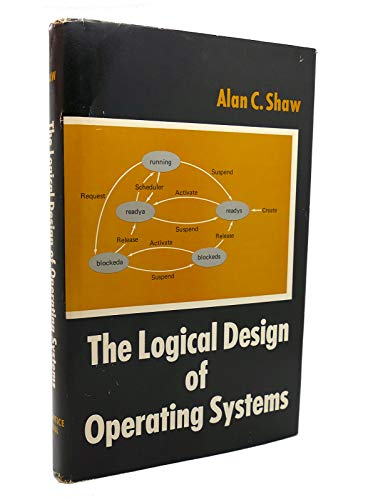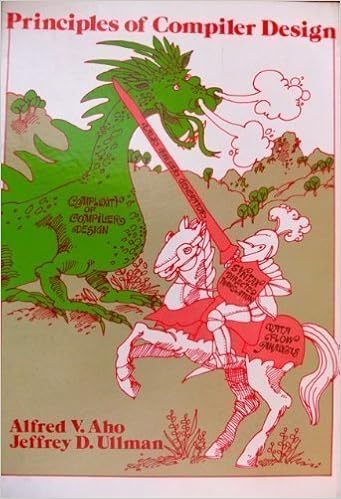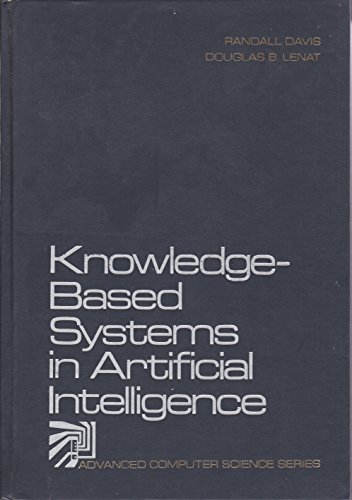Who am I? Books, the original Internet and Mobile Devices
Books pre-date the internet, and mobile phones, tablets, etc, and are the original portable mobile device. You can even read them in the bath (if you are careful, as paperbacks do tend to come apart when wet).
Ok, some books aren't so portable (chains) or small enough:
I used to read a lot (what else do you do in a small country town with not much to do except attempt to blow up the school science lab or hang out in the school or town library?) Do you know the problem of how many times you can fold a piece of paper in half? I did the experiment once using hundreds of newspapers and the entire floor of the school library (to test is bigger is better - it isn't, just makes it very hard to fold and heavy to move). The school library was also where I learned to touch type (on a mechanical typewriter which turned out to be a really useful skill later on. Although I recommend you start out early on ergonomic mice and keyboards, having to use the Enter key so much with your right hand little finger will kill it sooner or later, you can know get really good keyboards with Enter in the middle and a larger mice is better to).
PS Whoops, I was wrong, it is possible to fold paper more times than I achieved. The trick turns out to use very long narrow paper. This is a really good example of the sort of thinking that requires you to pick one variable only (e.g. one dimension of the paper) and take it to extremes (e.g. ask - does the paper need to be square? Obviously not. Does it need to be rectangular? Maybe. What if one side is a lot longer than the other? What about other non-regular shapes??). Not sure what this approach to problem solving is called but it has worked and "broken the rules" in a number of fields.
Britney's 11 fold record.
But Britney's record has been broken, with 13 folds (or 12 depending).
PPS Actually using toilet paper was "obvious". The reasoning goes: Everyone knows that toilet paper is a universal Turing machine, A Von Neumann Machine (an infinite self-replicating constructor) is a type of Turing machine, so Toilet paper is capable of infinite folding (QED).
e.g. see https://www.well.com/~hlr/texts/tftn.htm: "An amusing example of an easily constructed Turing machine, using pebbles and toilet paper, is given in the third chapter of Joseph Weizenbaum, Computer Power and Human Reason (San Francisco: W. H. Freeman, 1976)." And: http://www.halfbakery.com/idea/Bathroom_20turing_20machine
It's actually hard to find a a copy of the original Toilet paper turing paper online, anyone? There's a reference in philosophy of mind problems (e.g. can a toilet roll and a pile of stones "Think") here.
Actually reading so much almost killed me. I used to drive (as a passenger) with my Dad to the public library most Friday nights to return the weeks supply of books and scour the shelves for something new to read. One Friday I decided to stay at home instead (probably in the middle of some mad science experiment trying to blow up my parents basement). Lucky I did as someone drove at high speed into the passenger side door of the car on the way to the library. My dad was mostly ok but the car was squished in as far as the hand brake (in the middle). I would probably not be here today if I'd been in the car.
I discovered Cyberpunk at the Taupo (NZ) public library. It's still a cool early (earliest?) cyberpunk book, if you can track a copy down. It was John Brunner's, The Shockwave Rider, 1975.
This was the edition I finally tracked down.
Recently I cleaned out my office and had to bring several boxes (ok nearer 10) of professional (and other) books home. I've started to organise them and decided it would be fun to order them by date and photograph them (particularly as some/all may end up being donated to the local Lifeline bookfair). Most are old but potentially of historical interest.
I was going to start today, but one of the enemies of books made an appearance and I was going to use the deck outside (water, not fire, or people, silverfish, sunlight, mould, rats, kindles, etc). Maybe if it goes away later... Another complication is deciding what's professional vs personal as in my head they tend to merge. I've bought many fiction and non computer science books because I think they are related professional (e.g. cyberpunk, art and design books, non-fiction books about other aspects of science and scientific method). So, bother, I may have to go through the 3,000 odd books I had at home anyway to see what's "related".
Ok, this approach won't always work as some books don't have cover photos online.
E.g. SOFTWARE ENGINEERING. Edited by R. H. Perrott, Academic Press, London, 1977. No. of pages: 203. http://onlinelibrary.wiley.com/doi/10.1002/spe.4380080613/pdf
2000's
2010's
Ok, some books aren't so portable (chains) or small enough:
I used to read a lot (what else do you do in a small country town with not much to do except attempt to blow up the school science lab or hang out in the school or town library?) Do you know the problem of how many times you can fold a piece of paper in half? I did the experiment once using hundreds of newspapers and the entire floor of the school library (to test is bigger is better - it isn't, just makes it very hard to fold and heavy to move). The school library was also where I learned to touch type (on a mechanical typewriter which turned out to be a really useful skill later on. Although I recommend you start out early on ergonomic mice and keyboards, having to use the Enter key so much with your right hand little finger will kill it sooner or later, you can know get really good keyboards with Enter in the middle and a larger mice is better to).
PS Whoops, I was wrong, it is possible to fold paper more times than I achieved. The trick turns out to use very long narrow paper. This is a really good example of the sort of thinking that requires you to pick one variable only (e.g. one dimension of the paper) and take it to extremes (e.g. ask - does the paper need to be square? Obviously not. Does it need to be rectangular? Maybe. What if one side is a lot longer than the other? What about other non-regular shapes??). Not sure what this approach to problem solving is called but it has worked and "broken the rules" in a number of fields.
Britney's 11 fold record.
But Britney's record has been broken, with 13 folds (or 12 depending).
PPS Actually using toilet paper was "obvious". The reasoning goes: Everyone knows that toilet paper is a universal Turing machine, A Von Neumann Machine (an infinite self-replicating constructor) is a type of Turing machine, so Toilet paper is capable of infinite folding (QED).
e.g. see https://www.well.com/~hlr/texts/tftn.htm: "An amusing example of an easily constructed Turing machine, using pebbles and toilet paper, is given in the third chapter of Joseph Weizenbaum, Computer Power and Human Reason (San Francisco: W. H. Freeman, 1976)." And: http://www.halfbakery.com/idea/Bathroom_20turing_20machine
It's actually hard to find a a copy of the original Toilet paper turing paper online, anyone? There's a reference in philosophy of mind problems (e.g. can a toilet roll and a pile of stones "Think") here.
Actually reading so much almost killed me. I used to drive (as a passenger) with my Dad to the public library most Friday nights to return the weeks supply of books and scour the shelves for something new to read. One Friday I decided to stay at home instead (probably in the middle of some mad science experiment trying to blow up my parents basement). Lucky I did as someone drove at high speed into the passenger side door of the car on the way to the library. My dad was mostly ok but the car was squished in as far as the hand brake (in the middle). I would probably not be here today if I'd been in the car.
I discovered Cyberpunk at the Taupo (NZ) public library. It's still a cool early (earliest?) cyberpunk book, if you can track a copy down. It was John Brunner's, The Shockwave Rider, 1975.
This was the edition I finally tracked down.
Recently I cleaned out my office and had to bring several boxes (ok nearer 10) of professional (and other) books home. I've started to organise them and decided it would be fun to order them by date and photograph them (particularly as some/all may end up being donated to the local Lifeline bookfair). Most are old but potentially of historical interest.
I was going to start today, but one of the enemies of books made an appearance and I was going to use the deck outside (water, not fire, or people, silverfish, sunlight, mould, rats, kindles, etc). Maybe if it goes away later... Another complication is deciding what's professional vs personal as in my head they tend to merge. I've bought many fiction and non computer science books because I think they are related professional (e.g. cyberpunk, art and design books, non-fiction books about other aspects of science and scientific method). So, bother, I may have to go through the 3,000 odd books I had at home anyway to see what's "related".
Professional Library Organised By Decade
(I just realised I don't need to actually take photographs, just find photos online, simpler and drier).
Some tests
1960's
1960's
So you thought computer games were new?
Originally published 1968!!! (my edition 1975).
Ok, this approach won't always work as some books don't have cover photos online.
E.g. SOFTWARE ENGINEERING. Edited by R. H. Perrott, Academic Press, London, 1977. No. of pages: 203. http://onlinelibrary.wiley.com/doi/10.1002/spe.4380080613/pdf
From memory one of THE most boring books I've ever tried to read.
I seem to have lost my copy (this is the same edition I had). I wrote a BCPL cross-compiler with very aggressive optimisation for the 3rd year compiler course from this book, I recall being very excited when the compiler completely optimised away all of a complex program that actually "did nothing" - i.e. it emitted no code (for our 6809 experimental computer).
Yes, 1st edition 1978,
1980's
Advances in artificial intelligence: proceedings of the Sixth European Conference on Artificial Intelligence, ECAI-84, Pisa, Italy, September 5-7, 1984, Volume 1
https://books.google.co.in/books/about/Advances_in_artificial_intelligence.html?id=e8WEAAAAIAAJ
This is the text book I used (as a starting point) for lecturing 3rd year architecture in 1985. Archived here.
It introduced me to analytical modelling, and visualisation including Kiviat (radar) graphs (for performance metrics). . I'm surprised no one has used these (that I can find) for comparing AWS EC2 instances types. From the intro:
Design trends, methods of implementa- tion, and the use of analytical models in planning a computer family are illustrated through a wealth of data on various com- puter families, collected in Part IV. The book is made especially clear through im- portant technical and visual aids, such as ISP, PMS, and Kiviat Graph notation.Example Kiviat graphs:
This was the manual for my Amiga 500! A very cool computer, nice OS, speech synthesis, colour graphics, sprites, the works!
Where I first (?) came across pre and post conditions.
This was Volume 1: Syntax (there was never a Volume 2)
This is the text book that was used for the Networks and Distributed systems course that I was senior tutor for at UNSW in the late 1980s. Even though I was tutoring it, the course was my 1st formal introduction to distributed systems (databases, operating systems, computing, file systems, etc). "My" copy of the book turns out not to be mine after all, but was "borrowed" from Associate Professor John Lions (who lectured the course, it's got his name inside the front cover). Tanenbaum followed this book up with books on Distributed Operating Systems and then Distributed Systems. Some of the material that was developed for this course pre-empted content in both of these books.
1990's
My copy is signed by all the authors! (I reviewed it)
And some of the images are pathetic (it doesn't look anything like this)
Unix test tools and benchmarks : methods and tools to design, develop, and execute functional, structural, reliability, and regression tests / Rodney C. Wilson, 1985.
Cool cover! And it came with 2 floppy disks with code (still wrapped up in the back)
2000's
Wolfgang did an impressive "live" keynote of the book at ICSE 2008 (Leipzig). Based on audience requests he gave a brief history of the requested distributed object technology, summarised pros/cons and future directions, etc.
I hadn't realised Ian was incorporating random discussions I'd have with him into a book!
2010's






.svg/200px-The_C_Programming_Language%2C_First_Edition_Cover_(2).svg.png)














Comments
Post a Comment